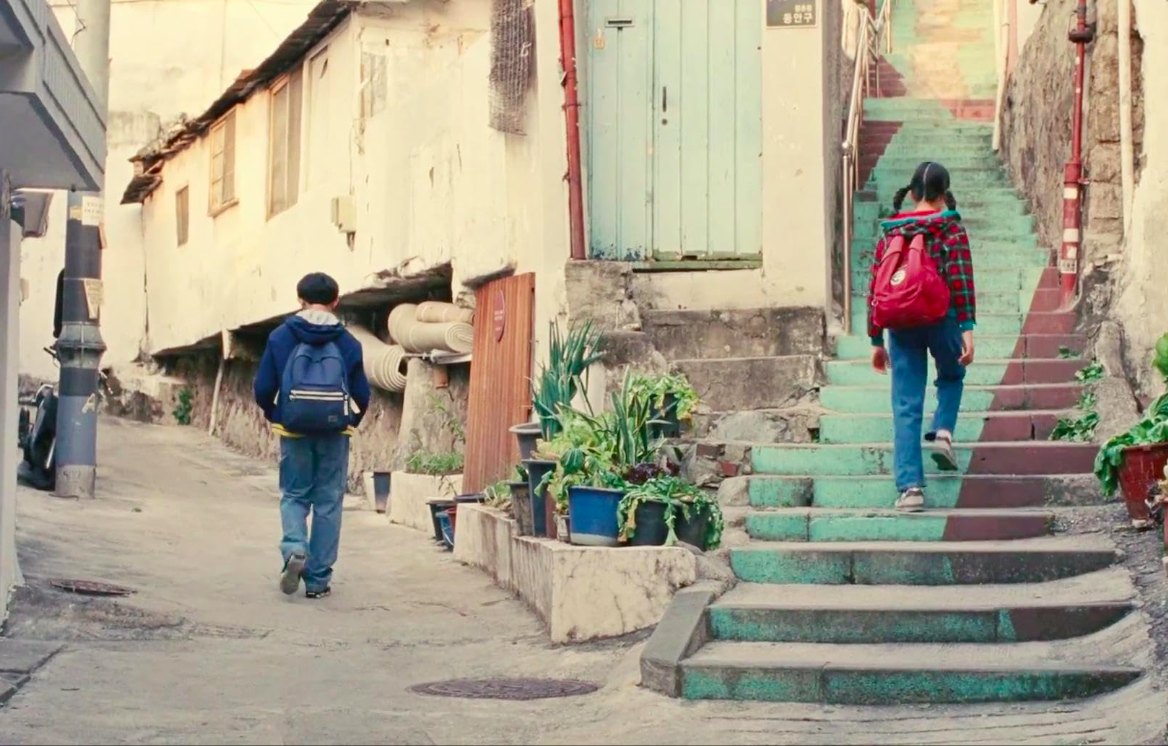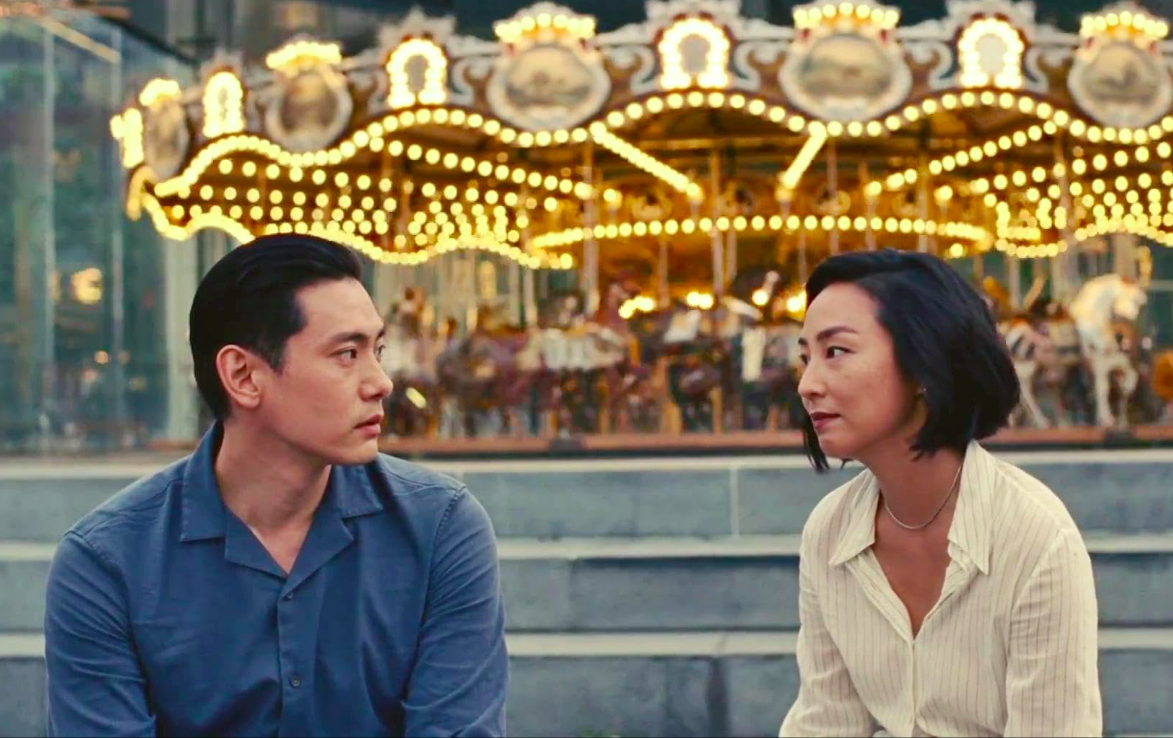By Lara Lippin, Third Year, English
Celine Song’s spellbinding debut Past Lives explores the relationship between childhood sweethearts Nora (Greta Lee) and Hae Sung (Teo Yoo). The South Korean and Canadian playwright and director captures the beauty of life’s interconnectedness and explores whether each encounter is down to chance or fate.
This philosophical question is explored by the film’s protagonist Nora (Lee), who discusses the Korean Buddhist term ‘inyeon’.
'It’s an inyeon if two strangers even walk past each other in the street and their clothes accidentally brush, because it means there must have been something between them in their past lives.'

The film opens with a wide shot of Nora sitting between Hae Sung (Yoo) and her Jewish American husband Arthur (John Magaro), being observed by two unknown speakers. Although we don’t know the identities of these three characters yet, Song makes it clear that they share a complicated history.
Cutting swiftly from this outside perspective, Song travels us back 24 years to Seoul, where Nora (known as Na Young in South Korea) and Hae Sung meet as classmates. The two children grow close quickly, bonding over their grades and shared interests.
Their blossoming friendship is quickly cut short by Nora’s parents’ decision to move to Toronto. The young pair’s final goodbye is beautifully captured by cinematographer, Shabier Kirchner. We watch young Nora and Hae Sung splitting off separately on their walk back from school, foreshadowing the pair's separation throughout the rest of the film.
Song then transports us twelve years later, where Hae Sung is still in Korea having finished military service and Na Young, now known as Nora, is trying to establish herself as a playwright in New York. Upon interest Nora reaches out to Hae Sung on Facebook, sparking them to reconnect over Skype.
They bond and reminisce over the past, intimately travelling back in time together. However, much like their childhood, this moment of bliss is abruptly cut short when Nora tells Hae Sung they should stop speaking. Rather than succumbing to a typical romance narrative, Song’s separation of the two suggests the complications of romanticising the past.
Both Greta Lee and Teo Yoo’s performances throughout the film are subtle yet powerful, using body language to communicate a thousand words. Whether it be a brief glance or a shift in tone, both actors powerfully convey their character’s repressed emotions. Even when they are physically together in New York, they are still separated by their opposing desires and feelings.
It is clear that Hae Sung has fallen for the Nora he once knew and clings to their past shared life as evidence of ‘inyeon’, however Nora is stuck between her past in Korea and her identity as an immigrant in New York. Although they once shared a romantic connection, Nora attaches Hae Sung to her past life and longs for new beginnings in New York.

Nora’s separation from her past life self-echoes Song’s own personal experience of moving from Seoul to Toronto at age 12. In conversation with the Los Angeles Times, Song explained how her childhood ‘happened in a different culture under a different name. It’s a silo or a distinctly separated moment in your life that very much feels like a past life.'
Song’s personal experience of separation shines through poetically, capturing both the heartbreak of being in love with the past version of someone else and the conflicting pain of breaking someone’s projection of a past version of you.
The slow burn of Song’s debut is worth every moment and more. It’s a modern masterpiece of a love story that will resonate with the past, present, and future.
Featured Image: IMDb
Past Lives is showing at Watershed until 21st September.









